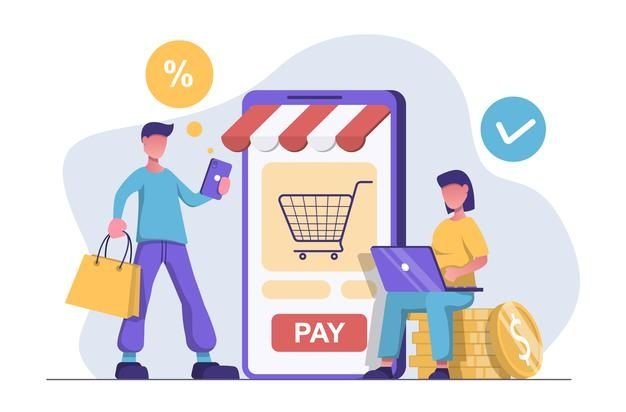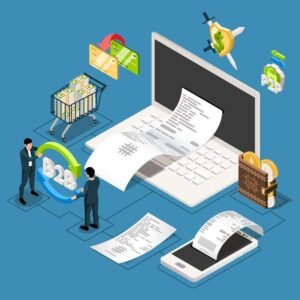Point of Sale (POS) software has become an essential tool for businesses across various industries, especially in retail and hospitality. It goes beyond the traditional cash register system, providing advanced features that streamline transactions, manage inventory, and analyze sales data. For businesses looking to enhance their operational efficiency and customer experience, adopting a modern POS system is a smart move. Here’s how POS software can transform your business.
What is POS Software?
POS software is a system that allows businesses to complete sales transactions and track every detail associated with each sale. Whether it’s a retail store, restaurant, or café, POS software manages everything from payment processing to inventory tracking and sales analytics. With cloud-based options available, POS software also provides flexibility by allowing business owners to monitor and control sales from anywhere, anytime.
Key Benefits of POS Software for Businesses
Streamlined Transactions
A good POS system enables businesses to handle transactions quickly and efficiently. By integrating multiple payment methods, including credit cards, debit cards, mobile payments, and cash, the checkout process becomes faster and smoother, improving the overall customer experience.
Inventory Management
POS software helps keep track of inventory levels in real-time, so you’re never left guessing about what’s in stock. Many systems also have automatic reorder triggers that alert you when stock levels are low, ensuring you’re always prepared to meet customer demand. This is especially beneficial for businesses with large inventories, such as retail stores.
Sales Analytics and Reporting
POS systems offer in-depth sales analytics, allowing business owners to track top-performing products, peak sales times, and customer buying patterns. By understanding these trends, you can make data-driven decisions on promotions, pricing, and inventory management, ultimately increasing profitability.
Customer Relationship Management (CRM)
Modern POS systems often come with CRM features, which allow businesses to track customer preferences, purchase history, and contact details. This information enables personalized marketing campaigns and helps businesses foster long-term relationships with their customers.
Employee Management
POS software can also be used to monitor employee performance, track working hours, and manage access controls. This helps improve workforce management and ensures accountability across shifts, ultimately increasing productivity.
Reduced Errors and Enhanced Accuracy
By automating sales and inventory tracking, POS systems help eliminate human errors that can occur with manual entries. This increased accuracy not only helps with inventory management but also ensures that financial records are always up-to-date and reliable.
Types of POS Software
Retail POS
Retail POS systems are tailored to the unique needs of retail stores. They offer features such as inventory tracking, barcode scanning, customer loyalty programs, and multi-store management. Retail POS solutions are ideal for businesses that need a comprehensive system to manage sales and stock.
Restaurant POS
Restaurant POS systems are designed to handle order management, table reservations, menu customization, and bill splitting. Some systems even have kitchen display features that streamline communication between the kitchen and wait staff, improving efficiency in high-volume environments.
Mobile POS
Mobile POS systems allow businesses to process payments using mobile devices like tablets and smartphones. This is particularly useful for small businesses or those that need to conduct sales on the go, such as at events or pop-up stores.
Cloud-based POS
Cloud-based POS systems store data on remote servers, allowing business owners to access and monitor sales data from any location with internet access. This flexibility is highly beneficial for businesses with multiple locations or for owners who prefer to manage operations remotely.
Choosing the Right POS System
Selecting the right POS software depends on your business needs. Consider factors such as the size of your business, the number of transactions you handle daily, and the specific features required for your industry. Cloud-based options are often a good choice for growing businesses, while mobile POS solutions work well for businesses that need flexibility and portability.
Implementing POS Software with ERP Consulting
For businesses that are new to POS software or want to integrate it with other systems, ERP consulting services can provide valuable guidance. ERP consultants assess your current operations and recommend the best POS software to meet your needs. Additionally, they assist in integrating POS with other business systems, such as accounting, HR, and inventory management, to create a unified and efficient workflow.
The Future of POS Software: Trends to Watch
AI and Machine Learning
Advanced POS systems are now incorporating AI to analyze customer preferences and predict trends. This helps businesses customize promotions and recommend products that are likely to appeal to individual customers, boosting sales and engagement.
Contactless Payments
With the rise of mobile wallets and NFC technology, contactless payments have become a must-have feature in POS systems. This trend is expected to grow as customers increasingly prefer faster and more hygienic payment options.
Integration with E-commerce
Many businesses operate both online and offline, and integrating POS systems with e-commerce platforms allows seamless inventory and sales management across all channels. This integration enables businesses to offer a unified shopping experience to customers, whether in-store or online.
Enhanced Security
Security is a top priority, especially when handling customer data. Future POS systems will likely include more robust security features, such as biometric authentication and advanced encryption, to protect sensitive information and maintain customer trust.
Conclusion
POS software is a powerful tool that can elevate business operations, improve customer satisfaction, and boost sales. From inventory management to detailed sales reporting and CRM features, the benefits of implementing a POS system are clear. Whether you’re a small retail store, a restaurant, or a large business, POS software can be tailored to fit your unique needs. For those looking to get started, consider consulting with ERP professionals who can guide you in selecting and integrating the right POS solution for your business. Embrace the future of retail and hospitality with the latest POS technology and stay ahead of the competition.
Call to action
Ready to take your business to the next level? Don’t let outdated systems hold you back! Invest in a powerful, customized POS solution today and watch your efficiency and customer satisfaction soar. Contact us to learn how our ERP consulting team can help you choose and implement the right POS software for your business. Embrace the future of business automation—schedule a free consultation with us now!




